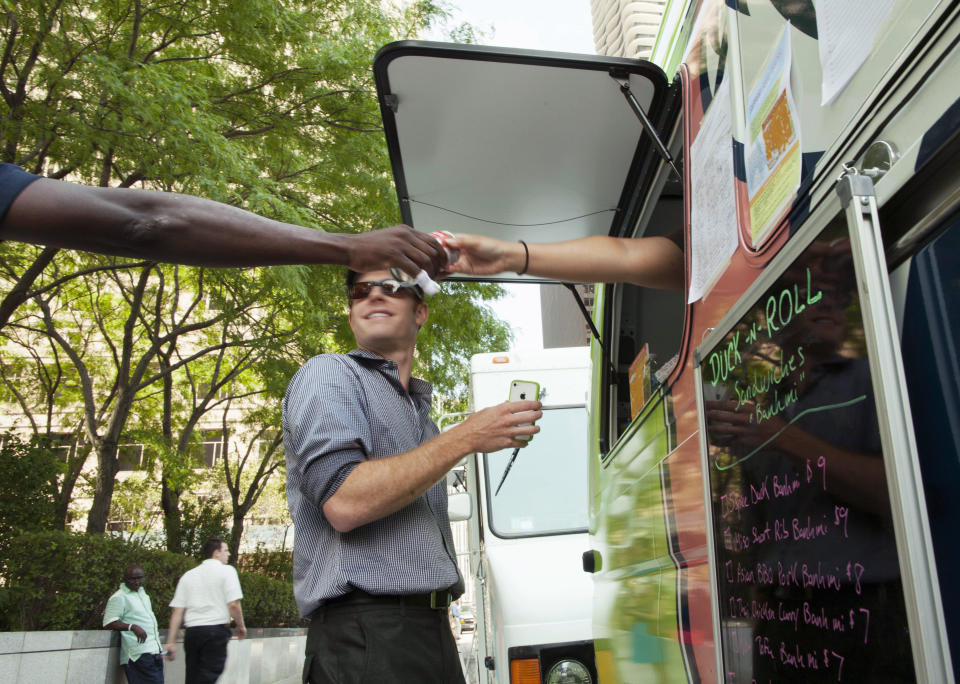Chicago City Council approves food truck ordinance
CHICAGO (AP) — Food truck operators in Chicago can finally cook onboard their vehicles, as they do across much of the U.S., under an ordinance approved Wednesday that also keeps in place a parking restriction that many owners say could drive them out of business.
Chicago, known for its high-end restaurants, has lagged behind other cities when it comes to joining the food truck craze. The trucks, with their niche menus, have been allowed to operate in the city, but chefs couldn't prepare food onboard.
Though the ordinance passed by the City Council on Wednesday does away with that restriction, it keeps in place a rule that prevents food trucks from parking any closer than 200 feet from a restaurant. Operators said that makes it clear the nation's third-largest city is more interested in protecting brick-and-mortar restaurants than helping them.
"This is devastating for the food trucks, devastating for consumers who will not be able to get what they want to eat where they want it and it's devastating for an industry when government starts protecting one business over another," said Tiffany Kurtz, owner of the Flirty Cupcake food truck.
Kurtz and others suggested food truck operators may sue over the restriction.
But Amy Le, owner of Duck N Roll, wondered if that's the answer. "Lawsuits take a long time and if we wait another two years for one to drag out some of us are not going to be in business anymore," she said.
The city's aldermen said they were trying to balance the interests of Chicago's restaurants against those of the food trucks. They contend that what they came up with will allow the food trucks to thrive in the city.
"We want food trucks to make money, but we don't want to hurt brick-and-mortar restaurants," said Alderman Walter Burnett before he voted for the ordinance.
The ordinance also requires the trucks to carry GPS devices so city officials can track them. Trucks can be parked in one spot for no more than two hours. But the ordinance also calls for the creation of food truck stands that could possibly be closer to the restaurants than 200 feet.
Aldermen said that they would likely have the locations for the truck stands in a matter of weeks. The ordinance calls for a minimum of five such stands in areas that have the most restaurants and where finding a spot more than 200 feet away is difficult if not impossible.
Aldermen called the ordinance a first step and said it can be modified if necessary. One co-sponsor, Alderman Tom Tunney, said there is no reason why, for example, stands can't be moved if food truck operators determine they are in places where customers can't find them.
Sam Toia, president of the Illinois Restaurant Association, could not be reached for comment. Earlier this month, he and restaurant owners praised the ordinance in general and the 200-foot rule in particular, saying it helps protect them.
Mayor Rahm Emanuel said the ordinance does something else: It helps the city catch up to others across the U.S. that have hundreds more food trucks than the few dozen operating in Chicago.
"Fifty other cities have figured out a way to go forward on food trucks and brick-and-mortar (restaurants)," he said. "Chicago is known as the Second City and I just wanted to be sure we weren't known as the 52nd city."


